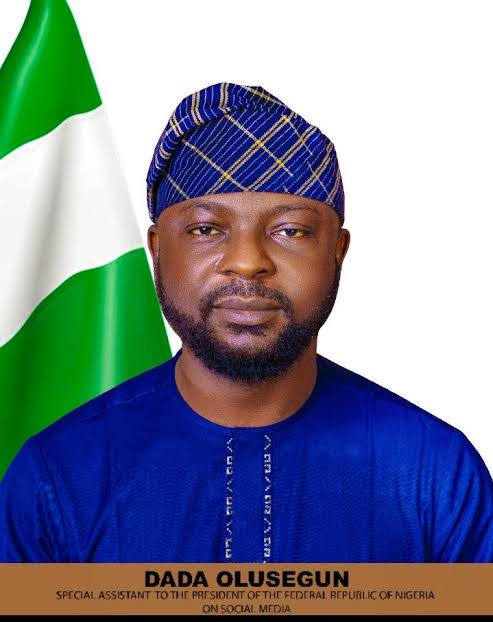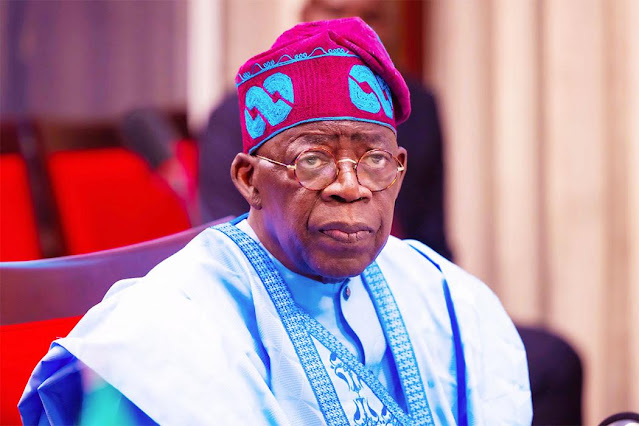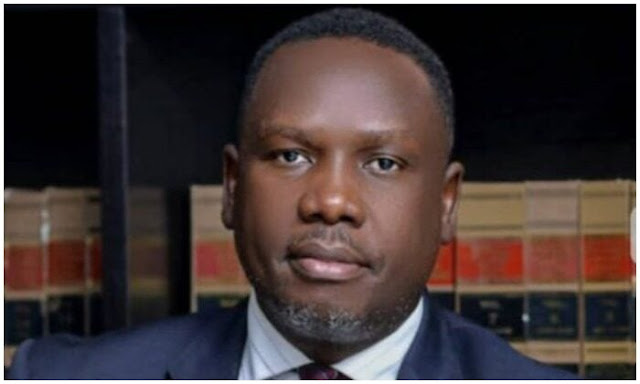In a landmark move to revolutionize the Nigerian education system, the Federal Government of Nigeria has released the full list of subjects included in the newly revised national school curriculum. This development, announced recently, is part of a broader effort to align the country’s education system with global standards, foster critical thinking, and equip students with the skills needed to thrive in a rapidly evolving world. The curriculum overhaul, which has been in the works for several years, is designed to address longstanding challenges in the education sector, including outdated teaching methods, lack of practical skills, and misalignment with modern technological and economic demands.
The announcement, made by the Federal Ministry of Education in collaboration with the Nigerian Educational Research and Development Council (NERDC), marks a significant milestone in Nigeria’s quest to reform its education system. The new curriculum, which will be implemented across primary and secondary schools nationwide, introduces a blend of core subjects, emerging disciplines, and practical skills aimed at preparing students for the challenges of the 21st century. This article provides an in-depth exploration of the new curriculum, its objectives, the subjects included, and the potential impact on Nigeria’s education landscape.
Background: The Need for Curriculum Reform
Nigeria’s education system has faced numerous challenges over the years, including inadequate funding, outdated curricula, and a lack of infrastructure. For decades, stakeholders in the education sector have called for reforms to address these issues and ensure that Nigerian students are equipped with the knowledge and skills needed to compete globally. The previous curriculum, which had been in use for over a decade, was criticized for its heavy reliance on theoretical learning, limited emphasis on technology, and failure to address emerging fields such as artificial intelligence, entrepreneurship, and climate change.
The Federal Government, under the leadership of President Bola Ahmed Tinubu, has prioritized education as a cornerstone of national development. The release of the new curriculum is a direct response to the need for a modern, relevant, and inclusive education system that reflects the realities of the digital age. According to the Minister of Education, Prof. Tahir Mamman, the revised curriculum is designed to foster creativity, critical thinking, and problem-solving skills among students while promoting Nigeria’s cultural heritage and values.
Key Objectives of the New Curriculum
The new curriculum is built on a foundation of several key objectives, which aim to address the shortcomings of the previous system and prepare students for a dynamic global economy. These objectives include:
Promoting Practical and Vocational Skills: The curriculum places a strong emphasis on vocational and technical education, enabling students to acquire hands-on skills that can lead to self-employment or entrepreneurship.
Fostering Digital Literacy: With the rapid advancement of technology, the curriculum introduces subjects that promote digital literacy and proficiency in emerging technologies such as coding, robotics, and artificial intelligence.
Encouraging Critical Thinking and Innovation: The curriculum shifts away from rote learning, encouraging students to engage in critical thinking, problem-solving, and creative expression.
Preserving Cultural Heritage: The inclusion of subjects like Nigerian history and indigenous languages ensures that students remain connected to their cultural roots while preparing for global competitiveness.
Promoting Inclusivity and Equity: The curriculum is designed to be inclusive, catering to students with diverse learning needs and ensuring that education is accessible to all.
Full List of Subjects in the New Curriculum
The new curriculum introduces a comprehensive list of subjects for both primary and secondary schools, categorized into core, compulsory, elective, and vocational subjects. Below is a detailed breakdown of the subjects included, as outlined by the Federal Ministry of Education and the NERDC.
Primary School Curriculum
The primary school curriculum is structured to provide a strong foundation in literacy, numeracy, and life skills. It is divided into lower basic (Primary 1-3) and upper basic (Primary 4-6) levels. The subjects include:
English Language: Remains a core subject, focusing on reading, writing, speaking, and comprehension skills.
Mathematics: Emphasizes foundational numeracy skills, problem-solving, and logical reasoning.
Basic Science and Technology: Integrates basic science, information and communication technology (ICT), and physical and health education to promote scientific inquiry and digital literacy.
Nigerian Languages: Includes major languages such as Hausa, Yoruba, and Igbo, with an emphasis on preserving linguistic diversity and cultural heritage.
Social Studies: Covers civic education, geography, and history to instill a sense of national identity and social responsibility.
Religious Studies: Includes Christian Religious Studies (CRS) and Islamic Religious Studies (IRS), with provisions for moral education for students who prefer a non-religious approach.
Cultural and Creative Arts: Encourages creativity through music, drama, fine arts, and crafts.
Physical and Health Education (PHE): Promotes physical fitness, teamwork, and healthy living.
Agricultural Science: Introduces students to basic farming techniques, environmental conservation, and food security.
Civic Education: Focuses on citizenship, rights, responsibilities, and democratic values.
Computer Studies: A new addition aimed at building early proficiency in ICT and coding.
Entrepreneurial Studies: Introduces basic concepts of entrepreneurship, financial literacy, and business skills.
Junior Secondary School Curriculum
The junior secondary school curriculum builds on the foundation laid in primary school, introducing more specialized subjects to prepare students for further education or vocational training. The subjects are categorized as core, compulsory, and elective.
Core Subjects:
English Language
Mathematics
Basic Science
Basic Technology
Social Studies
Civic Education
Nigerian Languages (Hausa, Yoruba, Igbo, or other recognized languages)
Religious Studies (CRS or IRS)
Cultural and Creative Arts
Physical and Health Education
Compulsory Subjects:
Computer Studies: Expanded to include programming, cybersecurity, and digital literacy.
Agricultural Science: Focuses on modern farming techniques, agribusiness, and sustainability.
Entrepreneurial Studies: Builds on primary-level concepts, introducing students to business planning and financial management.
Elective Subjects:
French: Encourages bilingualism and prepares students for regional and international opportunities.
Arabic: Offered in regions where it is culturally relevant.
Home Economics: Focuses on domestic skills, nutrition, and family management.
Business Studies: Introduces accounting, commerce, and office practice.
Senior Secondary School Curriculum
The senior secondary school curriculum is designed to prepare students for higher education, vocational training, or direct entry into the workforce. It is divided into core, compulsory, trade/entrepreneurship, and elective subjects.
Core Subjects:
English Language
Mathematics
Civic Education
Computer Studies/ICT: Emphasizes advanced programming, data analysis, and emerging technologies like artificial intelligence.
Biology (or another science subject, depending on the student’s chosen field)
Compulsory Subjects:
Economics: Introduces micro and macroeconomics, preparing students for careers in business and governance.
Literature-in-English (for arts students): Focuses on critical analysis of literary texts.
Government or History (for arts and social science students): Covers Nigerian and global political systems or historical events.
Agricultural Science or Technical Drawing (depending on the student’s stream).
Trade/Entrepreneurship Subjects: The curriculum introduces a range of trade and entrepreneurship subjects to promote self-reliance and economic empowerment. These include:
Animal Husbandry
Fisheries
Catering and Craft Practice
Garment Making
Data Processing
Marketing
Bookkeeping
Tourism
Mining
Store Management
Elective Subjects: Students can choose from a range of electives based on their interests and career aspirations, including:
Physics
Chemistry
Further Mathematics
Geography
French
Arabic
Financial Accounting
Commerce
Visual Arts
Music
Implementation Strategy and Timeline
The Federal Government has outlined a phased approach to implementing the new curriculum, with full rollout expected to commence in the 2025/2026 academic session. The implementation strategy includes:
Teacher Training: The Ministry of Education, in collaboration with the NERDC, will conduct nationwide training programs to equip teachers with the skills needed to deliver the new curriculum effectively. This includes training in ICT, vocational education, and modern pedagogical approaches.
Infrastructure Development: The government has pledged to upgrade school facilities, particularly ICT labs and vocational training centers, to support the new subjects.
Curriculum Materials: Textbooks, teaching guides, and digital resources aligned with the new curriculum will be distributed to schools across the country.
Stakeholder Engagement: The government will work with state governments, private school owners, and other stakeholders to ensure a smooth transition to the new curriculum.
Monitoring and Evaluation: A robust monitoring and evaluation framework will be established to assess the effectiveness of the curriculum and address any challenges during implementation.
Potential Impact on Nigeria’s Education System
The introduction of the new curriculum is expected to have far-reaching implications for Nigeria’s education system and the broader society. Some of the anticipated impacts include:
Improved Employability: By emphasizing vocational and entrepreneurial skills, the curriculum will produce graduates who are better equipped to enter the workforce or start their own businesses, reducing unemployment rates.
Technological Advancement: The inclusion of computer studies, coding, and emerging technologies will prepare students for careers in the digital economy, positioning Nigeria as a competitive player in the global tech industry.
Cultural Preservation: The focus on Nigerian languages and history will help preserve the country’s cultural heritage while fostering a sense of national pride among students.
Global Competitiveness: The curriculum’s alignment with international standards will ensure that Nigerian students can compete with their peers globally, whether in higher education or the job market.
Inclusivity and Equity: The curriculum’s emphasis on inclusivity will ensure that students from diverse backgrounds, including those with special needs, have access to quality education.
Challenges and Concerns
While the new curriculum has been widely praised, its implementation is not without challenges. Some of the key concerns include:
Funding: The successful implementation of the curriculum will require significant financial investment in teacher training, infrastructure, and resources. Nigeria’s education sector has historically been underfunded, and addressing this issue will be critical to the curriculum’s success.
Teacher Capacity: Many teachers may lack the skills needed to teach new subjects like coding and entrepreneurship. Comprehensive training programs will be essential to bridge this gap.
Infrastructure Deficits: Many schools, particularly in rural areas, lack the facilities needed to deliver the new curriculum effectively, such as ICT labs and vocational training centers.
Resistance to Change: Some stakeholders, including teachers and parents, may resist the changes due to unfamiliarity with the new subjects or concerns about the workload.
Equity in Access: Ensuring that the curriculum is implemented uniformly across urban and rural areas will be a challenge, given the disparities in infrastructure and resources.
Stakeholder Reactions
The release of the new curriculum has elicited a range of reactions from stakeholders in the education sector. The Academic Staff Union of Universities (ASUU) has commended the government for its efforts to modernize the curriculum but called for adequate funding to ensure its success. The National Association of Nigerian Students (NANS) has expressed optimism about the inclusion of vocational and entrepreneurial subjects, noting that they will empower students to become self-reliant.
Parents and guardians have also weighed in, with some expressing excitement about the new opportunities for their children, while others have raised concerns about the availability of qualified teachers and resources. Private school owners have called for government support in the form of subsidies and training to help them implement the curriculum effectively.
The Way Forward
The release of the new school curriculum is a bold step toward transforming Nigeria’s education system, but its success will depend on effective implementation and sustained commitment from all stakeholders. The government must prioritize funding, teacher training, and infrastructure development to ensure that the curriculum achieves its objectives. Additionally, collaboration with the private sector, international organizations, and civil society will be crucial in addressing the challenges and maximizing the curriculum’s impact.
As Nigeria moves toward full implementation of the new curriculum, it has the potential to set a new standard for education in Africa. By equipping students with the knowledge, skills, and values needed to thrive in the 21st century, the country is laying the foundation for a brighter future. The journey to educational reform may be challenging, but with determination and collective effort, Nigeria can build an education system that empowers its youth and drives national development.






